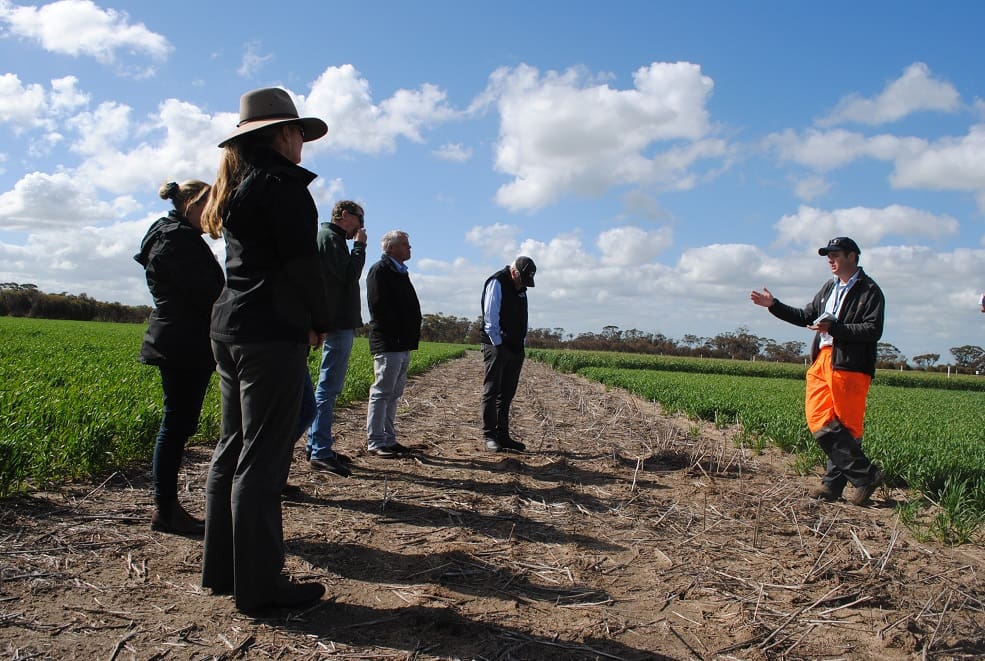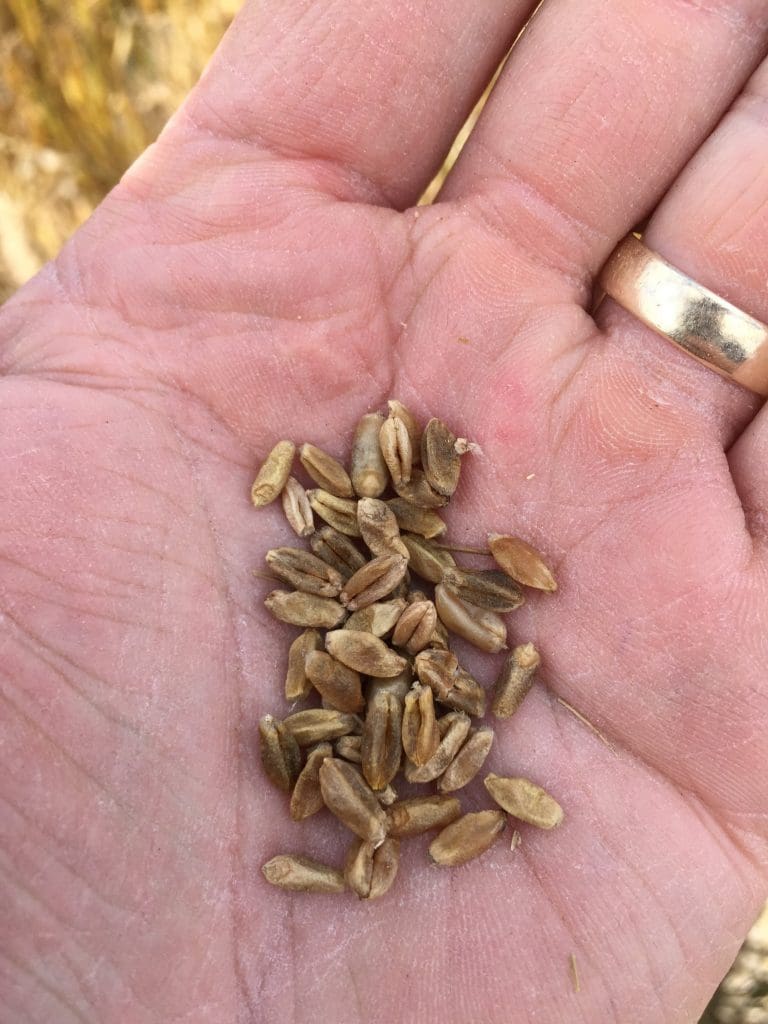
DPIRD research officer Ben Biddulph says frosted crops generate more dust and the crop residue builds up on the machine when harvested, contributing to increased fire risk. (Photo: GRDC)
GRAIN growers harvesting frosted crops this season should take extra precautions to minimise machinery wear and tear and the risk of fire, and to be conscious of the quality of grain retained for seed.
Western Australian Department of Primary Industries and Regional Development (DPIRD) research officer Ben Biddulph said frosts in August and September impacted many WA crops.
They included frosts in mid-September which affected a wide area of WA’s central, eastern and southern cropping areas, and involved temperatures below minus three degrees centigrade in some areas.
“The type and severity of crop damage varied according to the stage of crop development, but it appears barley crops are generally more likely to have been ‘grain frosted’, which may impact on seed quality,” he said.
“Within specific areas, frost damage has varied across the landscape in severity and scale.”
Dr Biddulph, who conducts frost research, development and extension at DPIRD with co-investment from the GRDC, said harvesting a frosted crop brought another layer of complexity to an already busy time of year.
“Some of the complications are limited to this season’s harvest, while others have ramifications for next season’s crop,” he said.
“If practical to do so, harvest frosted paddocks last so that grain from better paddocks is safely in storage first.”
Dr Biddulph said frosted crops were difficult to thresh due to higher residual sugars, lower grain volume and the green material in the case of a plant re-tillering.
“Despite lower tonnages, daily harvest maintenance and cleaning down equipment regularly still remain vital to minimise machinery fatigue and fire risk in these difficult harvesting conditions,” he said.
“Frosted crops generate more dust and the crop residue builds up on the machine when harvested, contributing to increased fire risk.
“This is due to the tough nature of frosted stems, shattering of frosted grains and increased saprophytic fungal and bacterial growth on the crop.”
Dr Biddulph said grain quality might be compromised depending on the timing of the frost.
“Frost-affected grains usually have a lower hectolitre weight and higher screenings. Adjusting header settings and/or grading can be beneficial but check the feasibility first,” he said.
“If keeping seed for next season, it’s important to source seed from least-affected areas to maximise establishment.
“Even after grading, frosted grain can have 20 to 50 per cent lower crop establishment than unfrosted grain during the following season.
“As a result, growers need to retain more seed than normal, sow into an optimum seed bed and increase the seeding rate to compensate for lower crop germination and vigour of frosted grain.”
Dr Biddulph said frosted stubble could rot at ground level and be difficult to seed into, in the following season.
“To minimise trash flow problems in subsequent seasons, frosted stubbles may have to be cut low during harvest or in a separate operation later on,” he said.
Source: GRDC
To listen to the new GRDC ‘Frost damaged crop salvage options and seed retention’ podcast, go to https://grdc.com.au/podcasts to obtain direct links to iTunes or Soundcloud, or use this URL to listen from your desktop.
More information about harvesting frosted crops is available on the DPIRD website at http://bit.ly/2Pz5wMC.
Seed quality can be tested closer to seeding by DPIRD’s Diagnostic Laboratory Services (DDLS) for a small charge. More information about the service is available at http://bit.ly/2QU2v6l
Grain Central: Get our free daily cropping news straight to your inbox – Click here


HAVE YOUR SAY